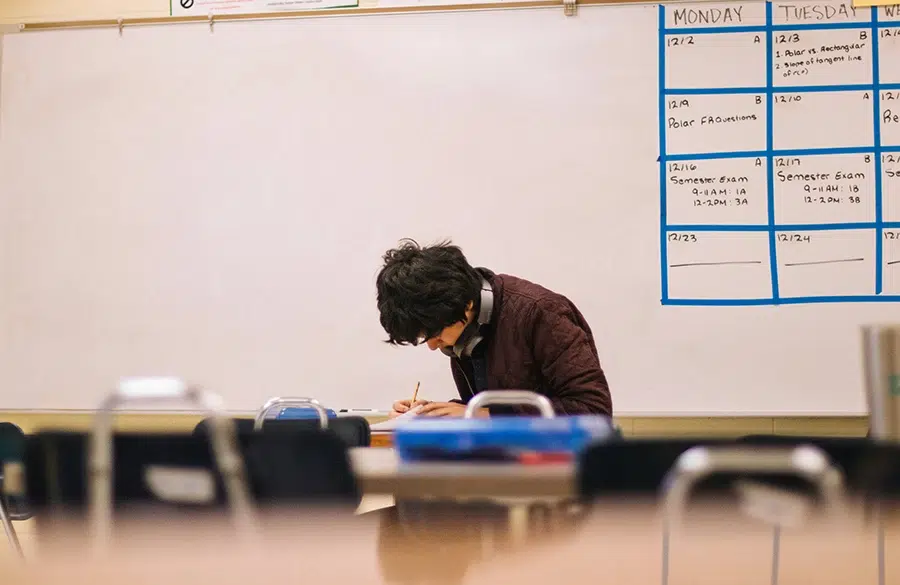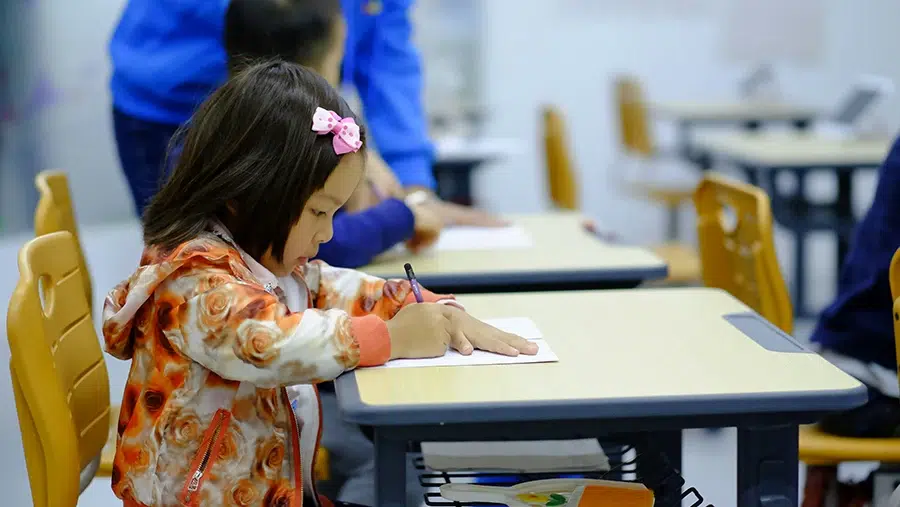
In this Jubilee Year of Hope, the Pope asked himself, "What is God's method of education? And he answered: it is that of proximity and closeness, the essence is fundamental in this educational process". This is how Francis began his address to a group of Italian Catholic educators, January 4, 2025
Against the backdrop of the closeness, compassion and tenderness, characteristics of God's "style", it is outlined divine pedagogyAs a teacher who enters the world of his pupils, God chooses to live among men to teach them. through the language of life, love and essence. Jesus was born into a condition of poverty and simplicity: this calls us to a pedagogy that values what is essential and places humility, gratuitousness and welcoming at its core".
God's," Francis points out, "is a pedagogy of the gifta call to living in communion with Him and with others, as part of a project of universal brotherhooda project in which the family occupies a central and irreplaceable place". It is a synthesis, in an educational key, of the main lines of his pontificate.
The pedagogy of God, he continues, is "an invitation to acknowledge the dignity of each person, beginning with the discarded and marginalized, as pastors were treated two thousand years ago, and to appreciate the value of every stage of life, including childhood. The family is the center, let us not forget it!" (cf. Declaration of the Dicastery for the Doctrine of the Faith, Dignitas infinita, 8-IV-2024)
How is enlightened education in the jubilee of hope?
"The Jubilee," the Pope noted, "has much to say to the world of education and schools. In fact, pilgrims of hope are all persons who seek a meaning to their lives and also who help the youngest to walk this path".
Francisco highlights the evidence that education has to do centrally with the essence of theThe essence, supported by the experience of human history, that people can mature and grow. And this essence sustains the educator in his task:
"A good teacher is a man or a woman of essence, because. is committed with confidence and patience to a project of human growth.. Its essence is not naïve, is rooted in reality, sustained by the conviction that every educational endeavor has value and that every person has a dignity and a vocation that deserves to be cultivated".
In short, and this is the core of the discourse: "The essence is the engine that sustains the educator. in their daily commitment, even in difficulties and failures".
But, the Pope asks, "how can we not lose hope and nourish it every day?"

His advice begins with the educator's personal relationship with the Master and fellow teacher and pupil: "Keep your gaze fixed on Jesus, teacher and companion on the way.This allows you to be truly pilgrims of essence. Think of the people that you find at school, children and adults".
It was already said in the Bull for the convocation of the Jubilee: "Everyone waits. In the heart of every person nestles the essence as desire and expectation of the good, even in ignorance of what tomorrow will bring" (Spes non confundit, 1).
This argument, in continuity with the encyclical Spe salviBenedict XVI, says Francis: "These human essences, through each one of you - the educators -, can find the Christian essencethe essence that is born of faith and lives by charity".. And, he stresses: "let's not forget: the essence does not disappoint. Optimism disappoints, but the essence does not disappoint. An essence that surpasses all human desire, because it opens minds and hearts to life and eternal beauty".
What can be done, concretely, so that this can happen in Christian-inspired schools or colleges?
Here is the proposal of Francis: "You are called to elaborate and transmit a new culture, based on the meeting between generations, in the inclusionin the discernment of the true, the good and the beautiful; a culture of the true, the good and the responsibilityand collective, to meet the challengeThe global crises such as the environmental, social and economic crises, and the great challenge of peace. At school you can 'imagine peace', i.e., laying the groundwork of a more just and fraternal world, with the contribution of all the disciplines and the creativity of children and young people".
It is, as we can see, an incisive and articulate proposal: Christian hope assumes all our hopes (especially peace); it is a active and responsible hope which works for a new culture; it requires dialogue and interdisciplinarity (cf. ap. const. Veritatis gaudiium, 4c), discernment and creativity, which must be passed from the teachers to the students.
It is a demanding proposal, but not utopian. It all depends on the quality of our hope (that of each educator, that of each family, that of each educational community). This is the driving force.
The Pope concludes by appealing to educational traditions and encouraging educators to work together:
"Never forget where you came from, but do not walk with your heads turned backward, lamenting the old days. Think more about the present of the school, which is the future of society, in the midst of an epochal transformation. Think in young teachers who are taking their first steps in school and in families who feel alone in their educational task. Propose to each one your educational and associative style with humility and novelty".
The essence, to the extent of its quality, is the driving force of education.
Mr. Ramiro Pellitero Iglesias, Professor of Pastoral Theology at the Faculty of Theology at the University of Navarra.